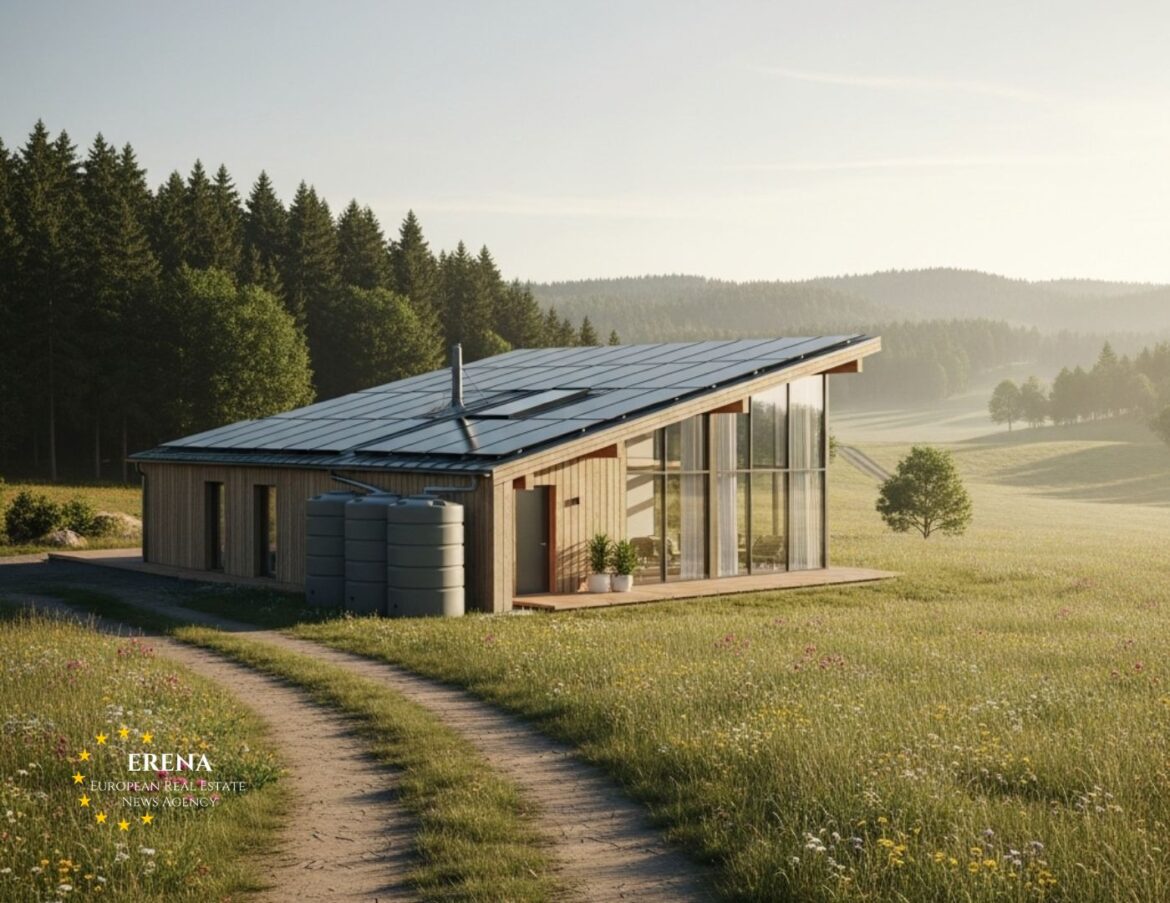Living off-grid is becoming increasingly popular across the European Union. It’s not just about reducing dependence on utilities or cutting one’s carbon footprint — for many, it’s a lifestyle choice built on independence, sustainability, and resilience. However, legal frameworks across the EU vary significantly, and homeowners looking to go off-grid need to navigate a complex set of rules concerning land use, construction, sanitation, energy, and taxation.
What Is Off-Grid Living?
Off-grid housing refers to a residence that functions independently of public utility systems such as electricity, water, sewage, and gas. These homes rely on renewable energy sources (e.g., solar panels or wind turbines), rainwater harvesting, independent sewage systems, and composting toilets.
Key components of an off-grid home include:
- Solar or wind-powered energy systems
- Battery storage units
- Rainwater collection and filtration systems
- Septic tanks or composting toilets
- Biomass or wood-burning heating
Legal Frameworks Across EU Countries
The legal permissibility of off-grid living differs by country and region. Some EU member states encourage sustainable housing through subsidies and legal recognition, while others enforce strict building and environmental codes that make off-grid life more challenging.
Germany
Germany doesn’t explicitly ban off-grid homes, but strict building codes (Bauordnung) and DIN standards apply. You’re not legally required to connect to the grid, but your independent systems must meet high safety and efficiency standards.
“We always advise clients to apply for permits even for solar panels or composting toilets to avoid penalties or issues with future property sales,” says Markus Wagner, a building law specialist in Munich.
France
France has a growing number of off-grid homes, especially in rural areas. These are legal as long as they comply with regulations regarding wastewater treatment and waste disposal. Some regions offer subsidies for eco-friendly infrastructure installations.
Important: Regional authorities often require environmental impact reports and technical documentation for off-grid systems.
Spain
In Spain, any residential structure — off-grid or not — must comply with municipal zoning and construction regulations. Unauthorized buildings, even in remote areas, can be subject to demolition.
“Many people wrongly assume that they can do anything on rural land. But sanitation, fire safety, and land use laws apply everywhere,” explains Ana Gutiérrez, a real estate lawyer based in Andalusia.
Italy
Italy permits off-grid housing but requires homeowners to notify local authorities and adhere to fire, environmental, and structural safety codes. In mountainous regions, such as the Alps, off-grid living is sometimes encouraged to preserve rural traditions.
Netherlands
The Netherlands embraces sustainable living through initiatives like Amsterdam’s Schoonschip floating village. However, all systems — from power to wastewater — must be approved by local planning authorities and meet national safety standards.
Key Legal Considerations for Off-Grid Homeowners
1. Building Permits
Even if a home is off-grid, it usually still requires a building permit. Failure to obtain one may result in fines or demolition orders.
2. Sanitation Standards
This is a critical legal aspect. Composting toilets, greywater systems, and septic tanks must comply with public health and environmental guidelines.
3. Fire and Electrical Safety
Solar panels, battery storage, and generators must be installed according to EU electrical standards and often require inspection by local fire safety authorities.
4. Water Supply
Off-grid homes must prove access to potable water — whether through filtered rainwater, wells, or certified filtration systems.
5. Registration and Taxes
Off-grid homes must still be registered as real estate and are subject to local property taxes, even if they don’t use public services.
6. Mortgages and Insurance
Many banks are hesitant to offer mortgages for off-grid homes, especially if they lack utility connections. Insurance companies may also require compliance with specific standards before coverage is granted.
EU Countries Where Off-Grid Living Is More Feasible
Countries with supportive regulations or incentives include:
- Sweden and Norway (EFTA): Promote sustainable building with minimal bureaucratic hurdles
- Portugal: Offers flexibility in rural zones
- France: Subsidies available for compliant eco-homes
- Estonia and Latvia: Lenient rules in non-urban areas
Practical Advice for Homeowners
- Check Land Zoning Laws: Ensure the land is designated for residential or mixed-use purposes
- Consult a Local Lawyer: Legal advice can prevent costly mistakes
- Design Within Legal Standards: Work with certified architects and engineers
- Join a Community or Network: Learn from others and stay updated on legal changes
- Document Everything: From solar installations to water systems, keep all permits and approvals on file
Conclusion
Off-grid living in the EU is a promising lifestyle, but it requires legal awareness and compliance. Success begins with understanding local laws, respecting environmental regulations, and designing systems that meet safety and hygiene standards.
“Living off-grid isn’t about rejecting society — it’s about redefining how we interact with it,” says Thomas Schulz, an eco-architect based in Berlin.

